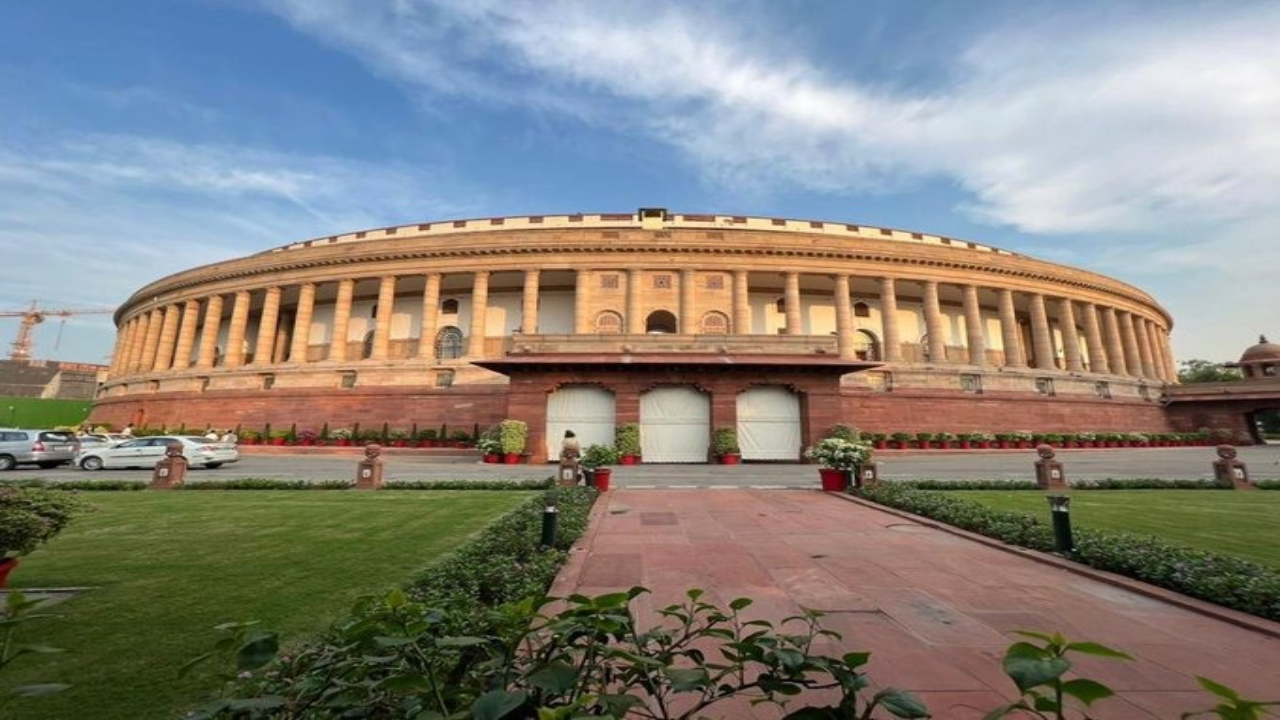Context
-
The Supreme Court recently issued notices to the Centre and five states Rajasthan, Uttarakhand, Madhya Pradesh, Uttar Pradesh, and Jharkhand over the failure to elect a Deputy Speaker.
Background
- A Bench led by Chief Justice of India (CJI) sought responses on a PIL that contends that not electing a Deputy Speaker to the 17th (present) Lok Sabha, which was constituted on June 19, 2019, is “against the letter and spirit of the Constitution”.
- The post has been lying vacant in the five state Assemblies as well, which were constituted between four years and almost one year ago, the plea states. (Shariq Ahmed v. Union of India And Ors).

What does the Constitution?
- Article 93 says “The House of the People shall, as soon as may be, choose two members…to be…Speaker and Deputy Speaker…and, so often as the office of Speaker or Deputy Speaker becomes vacant, the House shall choose another member…”
- Article 178 contains the corresponding position for Speaker and Deputy Speaker of the Legislative Assembly of a state.
Is it mandatory to have the post?
- Constitutional experts point out that both Articles 93 and 178 use the word “shall”, indicating that the election of Speaker and Deputy Speaker is mandatory under the Constitution.
Election
- “As soon as may be”, say Articles 93 and 178. But they do not lay down a specific time frame.
- In general, the practice in both Lok Sabha and the state Assemblies has been to elect the Speaker during the (mostly short) first session of the new House — usually on the third day after the oath-taking and affirmations over the first two days.
- The election of the Deputy Speaker usually takes place in the second session — and is generally not delayed further in the absence of genuine and unavoidable constraints.
- Rule 8 of The Rules of Procedure and Conduct of Business in Lok Sabha says the election of Deputy Speaker “shall be held on such date as the Speaker may fix”. The Deputy Speaker is elected once a motion proposing his name is carried in the House.
- Once elected, the Deputy Speaker usually continues in office for the entire duration of the House. Under Article 94 (Article 179 for state legislatures), the Speaker or Deputy Speaker “shall vacate his office if he ceases to be a member of the House…”. They may also resign to each other, or “may be removed from…office by a resolution of the House of the People passed by a majority of all the then members of the House”.
How was the post envisaged?
- In 1949, H V Kamath argued in the Constituent Assembly that if the Speaker resigns, “it will be far better if he addresses his resignation to the President and not to the Deputy Speaker, because the Deputy Speaker holds an office subordinate to him”.
- But what happens if the post of Deputy Speaker is vacant?
- “The House is informed of the resignation of the Speaker by the Deputy Speaker and if the office of the Deputy Speaker is vacant, by the Secretary-General who receives the letter of resignation in that House.
- The resignation is notified in the Gazette and the Bulletin,” say the Rules for Presiding Officers of Lok Sabha.
Do the powers of the Speaker extend to the DS as well?
- Article 95(1) says: “While the office of Speaker is vacant, the duties of the office shall be performed by the Deputy Speaker”.
- In general, the Dy. Speaker has the same powers as the Speaker when presiding over a sitting of the House. All references to the Speaker in the Rules are deemed to be references to the Dy. Speaker when he presides.
- It has been repeatedly held that no appeal lies to the Speaker against a ruling given by the Deputy Speaker or any person presiding over the House in the absence of the Speaker.
What is the position of the Union government on the current vacancy?
- The Treasury benches have maintained there is no “immediate requirement” for a Deputy Speaker as “bills are being passed and discussions are being held” as normal in the House.
- A Minister argued that “there is a panel of nine members senior, experienced, and selected from different parties — who can act as chairpersons to assist the Speaker to run the House”.
Can the courts intervene in cases of a delay in electing the DS?
- In September 2021, a petition was filed before the Delhi High Court, which argued that delay in the election of the Deputy Speaker violated Article 93 (Pawan Reley v. Speaker, Lok Sabha & Ors).
- However, there is no precedent of a court forcing the legislature to elect the Deputy Speaker.
- Courts usually don’t intervene in the procedural conduct of Parliament.
- Article 122(1) says: “The validity of any proceedings in Parliament shall not be called in question on the ground of any alleged irregularity of procedure.”
- However, experts said that the courts do have jurisdiction to at least inquire into why there has been no election to the post of Deputy Speaker since the Constitution does envisage an election “as soon as may be”.
Source: IE
Visit Abhiyan PEDIA (One of the Most Followed / Recommended) for UPSC Revisions: Click Here
IAS Abhiyan is now on Telegram: Click on the Below link to Join our Channels to stay Updated
IAS Abhiyan Official: Click Here to Join
For UPSC Mains Value Edition (Facts, Quotes, Best Practices, Case Studies): Click Here to Join
